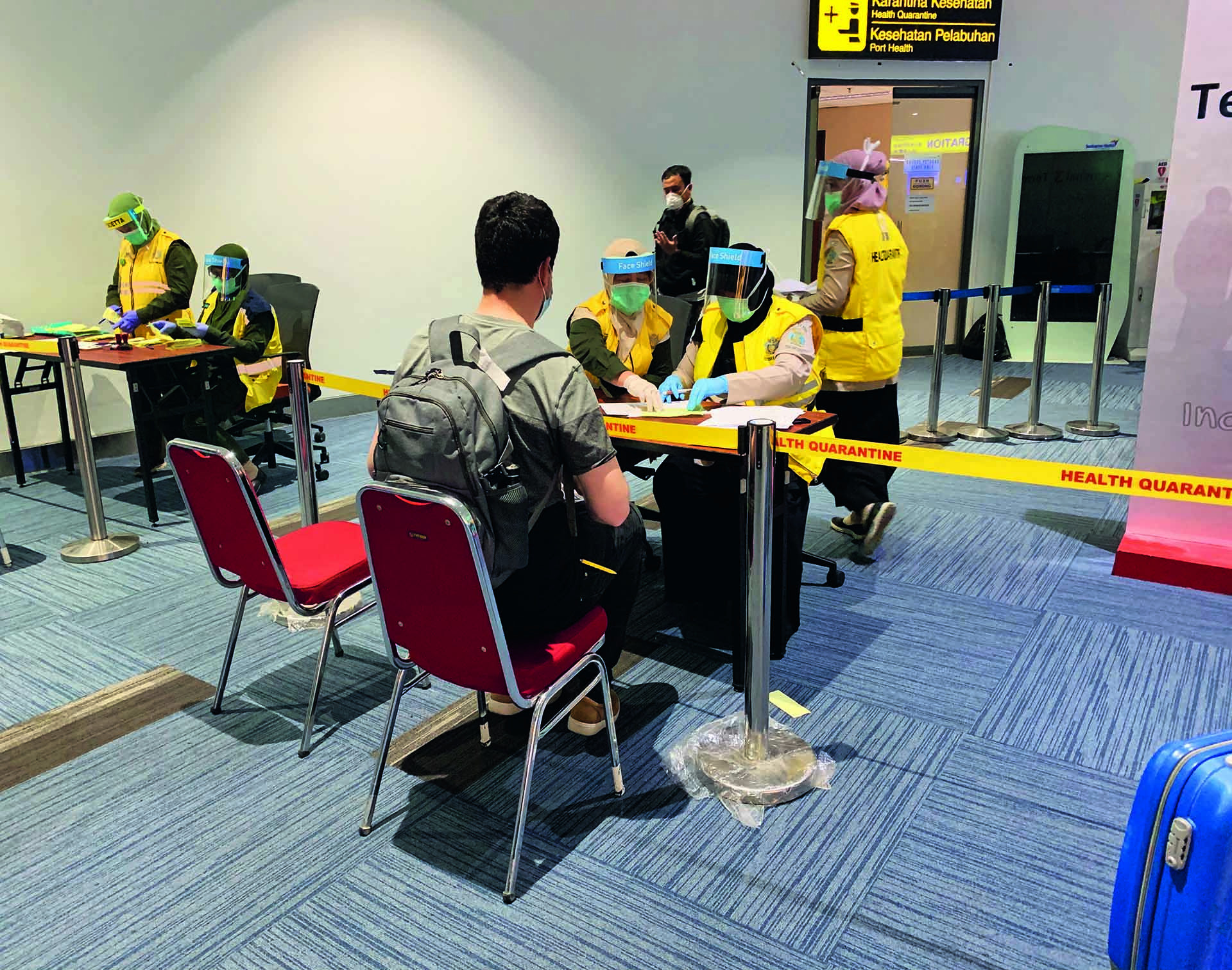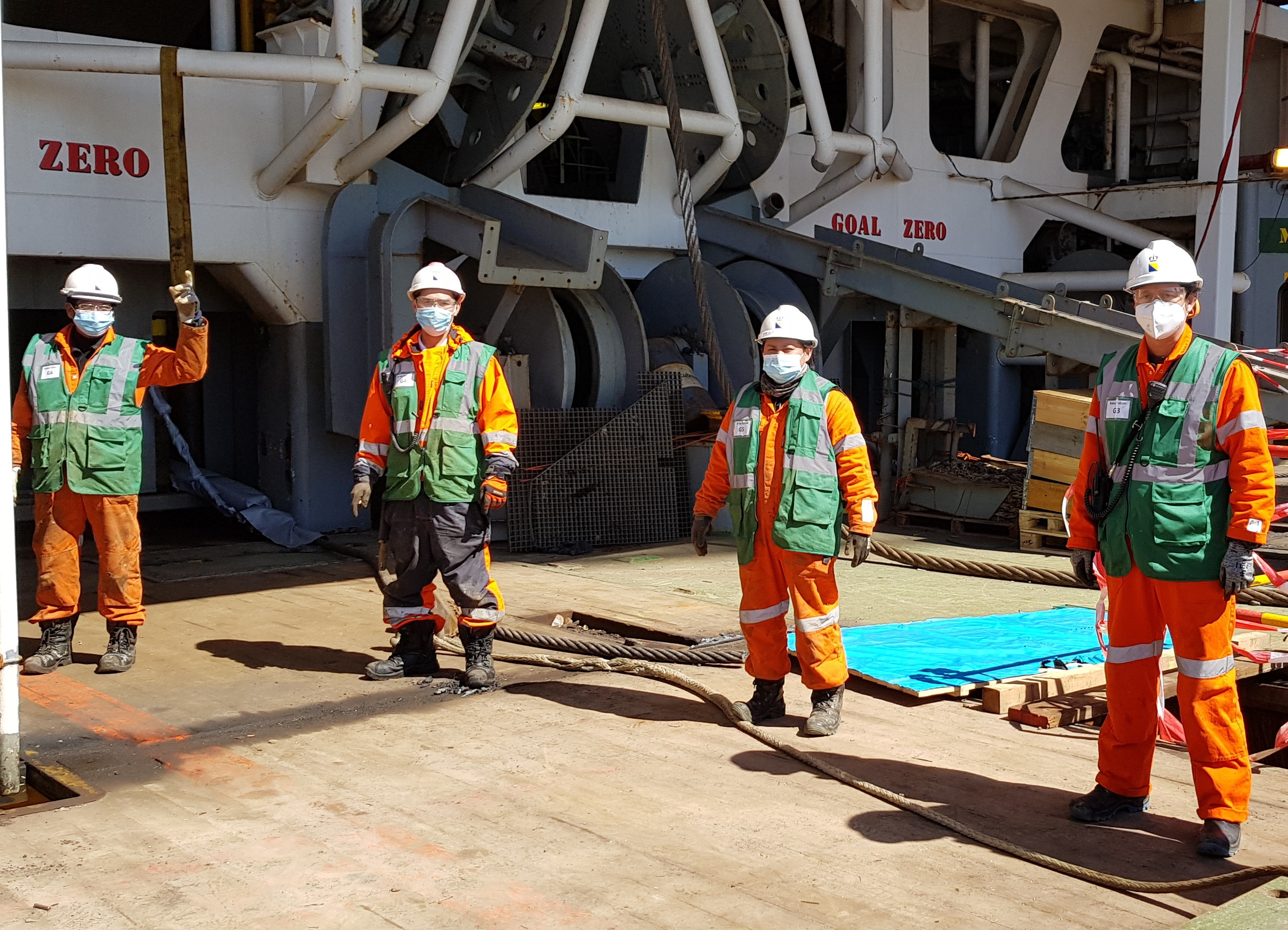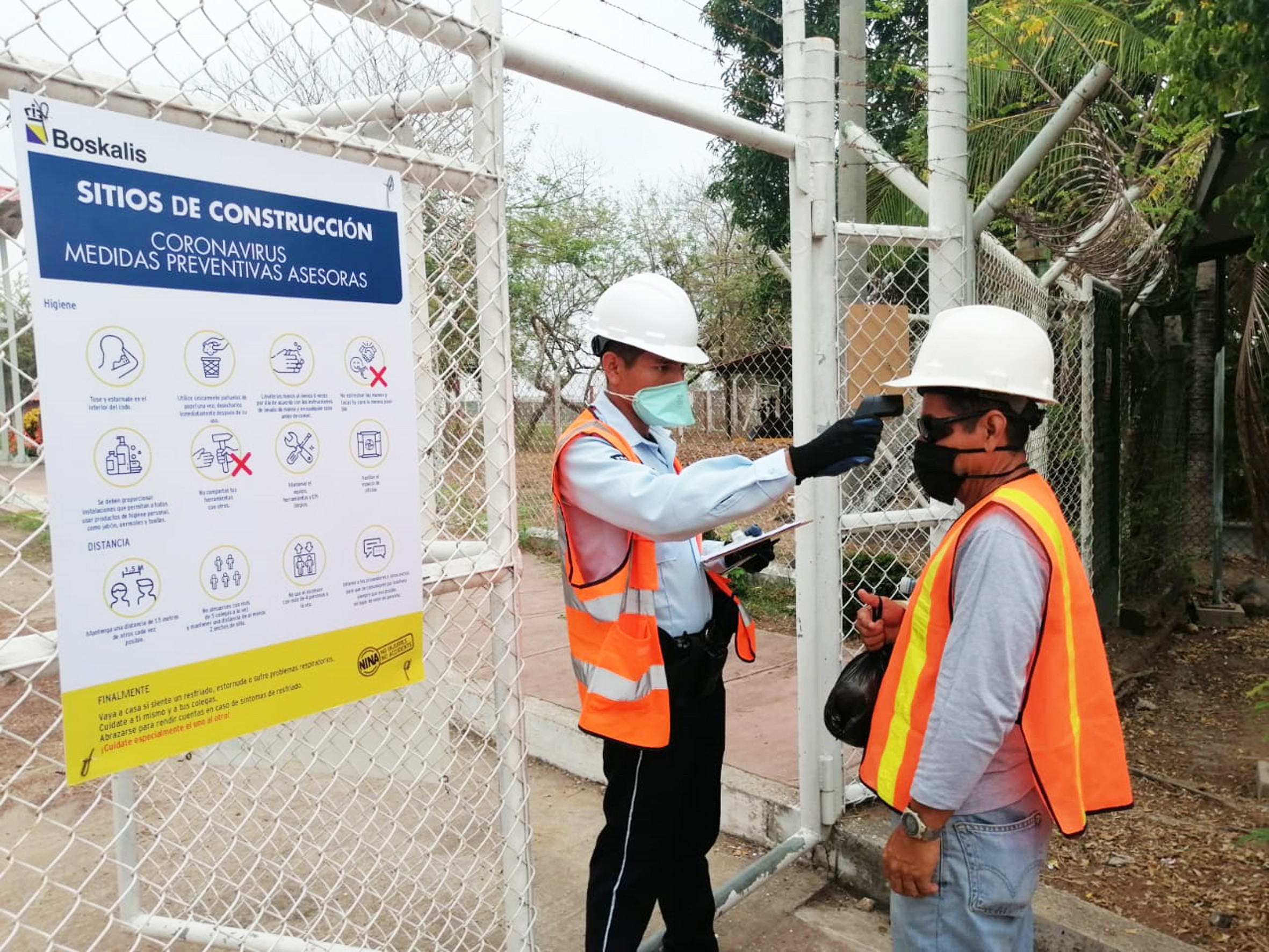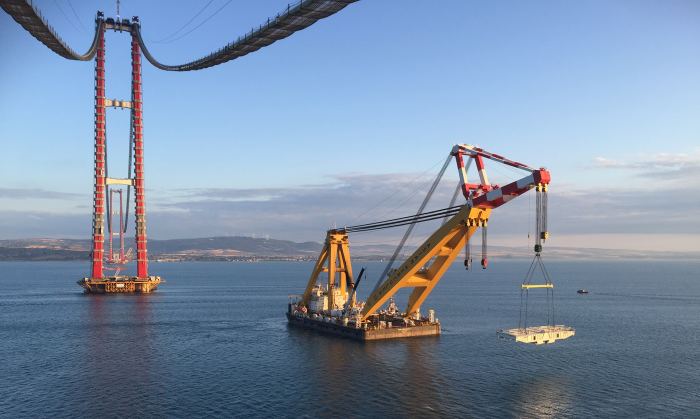Working at Boskalis means frequent travel for many colleagues. Whether the job is in a neighboring country or in a remote location: it used to be quite easy to reach most places fairly quickly. But in the past 18 months the COVID-19 pandemic has put a stop to many travel programs and colleagues sometimes have to spend weeks in quarantine. Manager Crew and Compliance Edgar van Oers and Coordinator Travel Management Arina Neeleman, both members of the Travel Emergency Team, explain how Boskalis tackles the problem.
“After the outbreak of the pandemic, we had no idea what the consequences would be,” says Van Oers. “One of the immediate challenges was to get our people to and from their work. We set up the Travel Emergency Team for that purpose. That was followed by many other initiatives to support our colleagues in their daily lives. Looking back on the past year and a half, I’ve seen how everyone at Boskalis has gone the extra mile, and even a few more, to keep our projects and vessels operational and to support each other in the best way possible.”
Emergency Response Team from day one
“In early March 2020, when the magnitude of the COVID-19 pandemic became apparent in Europe, we mobilized the Emergency Response Team (ERT) and had daily consultations with the Boskalis Board of Management,” says Van Oers. “The ERT and the Board followed the developments on the projects and our vessels closely. They set priorities to ensure the safety of our employees, focused on the continuity of the business, and took measures to preserve the financial position of the Group. As time progressed, many of the COVID-19-related ERT/Board actions were delegated to the Travel Emergency Team and other operational departments.”



Early testing and private charters
“In the initial period, relieving and rotating colleagues on the vessels and projects was a massive challenge,” says Neeleman. “Despite legal measures in certain countries restricting travel, the impact of the pandemic on the aviation industry, which came to a grinding halt, still had a crippling effect. By early April, we had established our own PCR testing procedure in collaboration with the Corporate Travel Clinic in Rotterdam, the Netherlands to test colleagues in the Port of Rotterdam using the facilities on board our vessels Ndeavor, BOKA Da Vinci and Ndurance. That allowed us to check whether relief crews were healthy and free of COVID-19, and to provide relief for projects and vessels in Europe.”
For projects outside of Europe, the testing facility was expanded to Amsterdam Airport Schiphol and, in the absence of scheduled flights, Boskalis organized numerous private charter flights to keep the projects moving.
Travel Emergency Team
With a core team in the Netherlands and support colleagues in locations around the world, the Travel Emergency Team (TET) was set up in March 2020, when travel restrictions were introduced in numerous countries, to maintain safe travel between vessels and projects. The focus was on optimizing travelers’ wellbeing, as well as the continuity of their travel arrangements. TET’s activities included managing tailor-made travel options for individuals and groups, which occasionally involved contact with the Dutch embassy of a particular country. “The team worked day and night, ensuring colleagues who needed to travel had the right documentation, and dealing with the unpredictable logistics of quarantine,” says Van Oers. “The TET was in regular contact with the projects to discuss the support needed and it maintained close contact with colleagues during their journeys.”
Our Quarantine Support Team was set up to provide the best possible support for colleagues
COVID-19 test facility
As a service to employees and to circumvent the long waiting times at regular COVID-19 test facilities, Boskalis set up a test facility on the Papendrecht campus in the Netherlands. The Corporate Travel Clinic implemented similar facilities in the Netherlands for crews before they boarded vessels, and for employees working on projects.
Quarantine support
“Due to the pandemic, colleagues sometimes had to spend weeks in quarantine, with potential major impacts on personal wellbeing,” says Neeleman. “Our Quarantine Support Team was set up to provide the best possible support for colleagues all around the world, looking after both their mental and physical wellbeing. We adapted this support in line with local circumstances; some colleagues were in isolation on vessels while others were quarantined in hotels.” Van Oers adds: “In some instances we hired extra staff from outside the organization, including psychologists. We also set up a Quarantine Support portal with tips about how to use the time in isolation for self-development, for example by following training courses via the Boskalis online academy. We introduced a Quarantine Guidelines toolbox to give practical advice and tips, as well as a toolbox for the quarantine period. All in all, I think it’s fair to say that we’ve managed to work out a modus operandi together. The figures show that this approach has been effective but we all have the same feeling: everyone is waiting for these difficult times to end.
Fortunately, in large parts of the world, we are getting more to grips with the virus and that means there is more freedom of movement. More scheduled flights are available again and so charter flights are hardly needed any longer. Fewer mandatory PCR tests are required, in part because of the rise in the number of vaccinated colleagues. Because inoculation is important for travel, we as the Travel Emergency Team are continuing to stress with our colleagues just how essential anti-COVID jabs are.”
